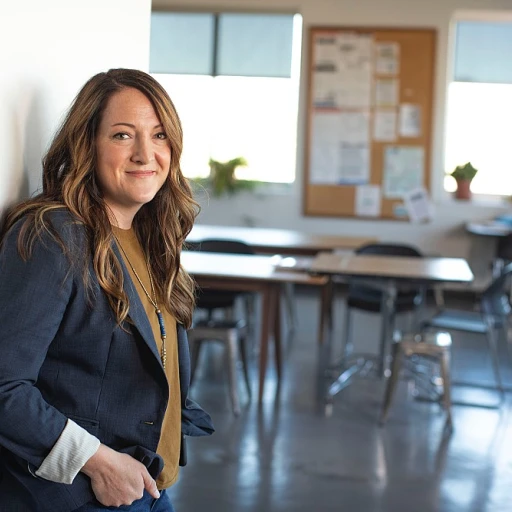
Understanding the Demands of Home-Based Senior Care
Grasping the Challenges of At-Home Senior Care
Navigating the responsibilities that come with at-home senior care can be both rewarding and overwhelming. For families in Santa Cruz, Monterey County, and similar locales, providing care for aging loved ones often involves a balance between personal obligations and professional commitments. Understanding these demands is key to establishing a thriving environment where seniors can enjoy peace of mind and security while aging in place. Family caregivers may often juggle various roles, striving to offer personalized care alongside managing their own lives. They are at the heart of the support system, ensuring that older adults receive the necessary home services for their health and well-being. It becomes essential for these caregivers to remain informed about available care services and health care options that can aid in their responsibilities. The role of home senior care providers is crucial in supporting families by offering needed medical care and additional services. They ensure that seniors can live comfortably in their own homes without the need for extensive relocations, which can be stressful for both the seniors and their family members. Additionally, in thriving home environments, effective collaboration between caregivers and care providers can significantly ease the demands placed on families. In understanding the intricate demands of home-based senior care, it is also important to draw attention to the resources and support systems available. By leveraging external support and understanding the full scope of care plans available, families and caregivers can maintain a balance that supports both the senior’s needs and the caregiver’s life. For those navigating these challenges, exploring methods for enhancing work-life balance can be invaluable in maintaining a healthy equilibrium between their caregiving duties and personal life.Setting Boundaries to Maintain Work-Life Balance
Establishing Clear Boundaries
For family caregivers devoted to aging loved ones, setting clear boundaries is crucial for maintaining a healthy work-life balance. As the lines between home and care services can easily blur, developing concrete boundaries ensures that both caregivers and clients experience a structured environment. This step is key in thriving while providing support services to older adults.
Boundaries can take many forms, and will likely vary depending on the unique situation in each household. It's essential to communicate with your family members and care providers to establish what works best for everyone involved. For instance, setting specific times for personal commitments and caregiving tasks can help delineate between personal life and caregiving responsibilities.
Recognizing your limitations is part of this process. It's perfectly okay to delegate certain tasks to other family members or seek professional help if necessary. Home care services in Santa Cruz, Monterey County, and beyond, can be invaluable resources to ensure your loved ones receive the personalized care they need while allowing you to maintain a sense of balance.
The Power of Communication
Open and honest communication with your support network is vital. Discuss your care plan with your family and other caregivers to ensure everyone is on the same page, respecting both the preferences of the older adults and the workload of involved caregivers. This aligns with adapting to the changing needs and circumstances of the care receivers.
Frequent check-ins can be organized to reassess whether the set boundaries are still effective or if adjustments are needed to accommodate shifts in care demands or work obligations.
If you seek further insights on work-life balance strategies, embrace wellness for practical advice and well-being tips.
Effective Time Management Strategies
Mastering the Clock: Balancing Time Effectively
Finding balance while providing home-based senior care requires a meticulous approach to time management. Effectively allocating your time ensures the needs of your loved ones are met while allowing you to maintain a fulfilling and thriving lifestyle. Prioritize essential tasks each day. Start by crafting a realistic schedule that accommodates both care responsibilities and personal commitments. A well-planned care plan not only benefits the senior in your household but also prevents burnout among family caregivers. Remember to factor in breaks; these are not indulgences but necessities for preserving peace of mind.- Leverage Technology: Utilizing home care technology can streamline tasks, offering reminders for medical care schedules or regular health assessments. Many care services provide digital solutions to keep track of health care needs and appointments, which can be especially beneficial in counties like Santa Cruz or Monterey.
- Delegate When Necessary: Understand that providing care does not mean you must do everything alone. It is okay to rely on resources such as professional care providers or community support services. Many older adults in the area thrive with the help of personalized care services that ease the daily demands on family caregivers.
- Learn to Say No: Establishing clear boundaries prevents overload. When the demands of caregiving make it challenging to balance your personal life, learn to say no to additional requests that detract from your primary focus of quality senior care and family time.
Utilizing Support Systems and Resources
Reaching Out for Assistance: Strength in Numbers
Navigating the demanding landscape of home-based senior care can often feel overwhelming for family caregivers. However, though it may seem daunting, no one is truly alone on this journey. Leveraging support systems can significantly ease the burden and foster a thriving home environment for your loved ones. Seek help from local community resources, which often provide valuable services to families in need of senior care. In areas like Santa Cruz or Monterey County, reaching out to health care providers and community centers can connect you to a network of dedicated professionals ready to assist. Various organizations offer comprehensive care services, personalized care plans, and even medical care designed to aid older adults in aging in place gracefully.- Professional Home Services: Engage professional home care services that provide a wide range of offerings, from assistance with daily activities to more specialized medical care. These services can relieve family caregivers of certain responsibilities, maintaining peace of mind for all parties.
- Support Groups: Joining caregiver support groups offers emotional support and practical advice. It provides a platform to share experiences with others facing similar challenges, and to learn effective strategies for maintaining a work-life balance, as you juggle various caregiving duties.
- Online Resources: Leveraging digital platforms dedicated to caregivers can provide crucial information and community support. Blogs and forums offer insights into managing stress, setting boundaries, and maintaining life balance, which is crucial for your well-being.













